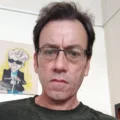A group of opponents of proven trajectory inside and outside Cuba, among them Guillermo Fariñas, Antonio Rodiles, and Camila Acosta are trying to lead the debate toward the need to allocate the bulk of our scarce resources to create a strong and structured opposition movement of masses inside the country.
Let us speak clearly. If more than four decades of peaceful opposition inside Cuba have demonstrated anything, it is the impossibility of articulating a mass opposition movement inside the country. Those of us who have been in the internal opposition for years know what happens when you decide to get down to work on it: they will surround you with undercover agents of the State Security, not only to be aware of your every step and plan, but above all subtly promote the differences within your movement, multiply the suspicions of each other, make it impossible to agree within it, and finally cause its implosion. They will call upon each new individual not only to join the movement, but to show signs of willingness to do so, they will harass him or the people around him, they will expel him from his job, they will refuse him the license to take over a private enterprise… until they make him desist and move away from it… until they make him give up and walk away. Finally, if you insist or begin to have any success in your purpose, they will target you, the organizer, limit your freedom of movement, or even put you in jail, if you do not accept exile.
Cuba is still a totalitarian dictatorship, with a very efficient system of prophylactic repression. Even in the People’s Democracies, that watered-down form of totalitarianism in Eastern Europe, where nationalism and socialism went in opposite directions in the first place, the latter being an imposition of the Red Army, where other parties were allowed, the secret police was never very loyal and never very efficient — I am not saying that, but the KGB reports — small business was widely allowed since the 1960s. … even there only in the Polish case were the conditions for the emergence of an articulated, mass opposition movement around a trade union and the powerful Catholic Church. In all the other countries it was the ruling elites who surrendered to the first spontaneous movements in the East European capitals, which arose after Gorbachev expressly renounced to intervene in his sphere of influence.
To imagine an articulated mass opposition movement inside Cuba, capable of carrying out massive, planned, and coordinated actions, while totalitarianism prevails, specifically the control of State Security, and the willingness of all armed institutions to repress when ordered to do so, is only a dream.
On the other hand, the probable emergence of such a mass movement, with clear leadership, is not necessarily the beginning of the end of the regime. Venezuela and Nicaragua demonstrate this. The reality is that, given the degree of social control to which the contemporary state can easily accede, it is increasingly difficult to overthrow it “from below”. In Eastern Europe, as we have mentioned above, it was Moscow’s decision, and the subsequent division and renunciation of the ruling elites to fight, that brought down the totalitarian socialist regimes.
In Cuba, however, conditions are very different from those in Eastern Europe. As we have already pointed out, socialism went in the opposite direction of nationalism in those nations, an ideology always more attractive to the human heart. Here, on the contrary, since the previous Revolution of 1933, in the political and intellectual, but also in the popular imagination, socialism has been identified as indispensable to maintain a national state with the high degree of political independence and sovereignty to which our nationalism has always aspired since it borrowed its ideas of independence and sovereignty from nothing less than the American isolationism of the 19th century.
Let us remember, the regime is more likely to be overthrown by spontaneous movements, and not by a previously coordinated, mass one. The comparison between 11J and 15N proves it: the prepared movement did not even put an individual on the streets, while the spontaneous one took control of them from the regime for a few hours.
As long as the regime does not dare to initiate what a sector of the opposition, and almost all the exile, disqualifies as a “fraud” change, a change that relaxes the efficiency of its prophylactic repressive system, either because of the need to wash its face by switching to a more conventional, “post-facto” repression, or because the measures taken imply an ideological relaxation in the repressors and in their relations of loyalty to the central power — it is already happening—, the internal opposition can only have the following functions: to distract part of the regime’s attention from us, and thus give the opportunity to spontaneous movements arising from the sector that has not assumed a transparent oppositional political attitude; to serve as an example and moral ferment, as people who live “in the truth” and not in the government lie, as Václav Havel said; to try to organize the masses in case of spontaneous uprisings, to turn them into efficient political movements, capable of taking power; to support, or at least not to direct the essential of the attacks on the reformist proposals from within the regime.
The effort to organize that dreamed movement, ideal, inside Cuba must be maintained. But not as the main direction of our activism and the priority destination of scarce resources. Only to keep activism alive inside the island, as well as to distract the attention of the regime’s surveillance apparatus from the many tendencies toward pluralism developing deep inside Cuban society today.













